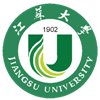Name of expert: Pan Zhigeng
Date: November 13, 2020 time: 10:30
Venue: Lecture Hall 208, computer building
Sponsor: School of computer science and Communication Engineering
Pan Zhigeng, chief scientist of national key R & D projects, vice president of China Image Graphics Association, vice president of China virtual reality and visualization innovation technology strategic alliance, director of entertainment simulation special committee of China system simulation society, President of Guangdong virtual reality Industry Research Institute, and President of virtual reality and Intelligent System Research Institute of Hangzhou Normal University.
He was born in September 1965 and received a doctor's degree in engineering from Zhejiang University in 1993. He entered Zhejiang University in 1993, engaged in the research of basic theory and algorithm of computer graphics. With outstanding achievements, he was promoted to associate researcher in 1994, to researcher in 1996, and to doctoral supervisor of Zhejiang University in 1998. In 2008, he was named as the national advanced individual of Olympic Games.
The main research directions are: virtual reality, human-computer interaction, digital museum, smart tourism, digital entertainment and games.
He has published more than 180 papers, including more than 80 papers from international important journals and top conferences, including more than 70 SCI papers and more than 120 EI papers. His published papers have been widely cited by scholars at home and abroad.
According to Google Scholar, his works have been cited nearly 2000 times. Among them, the papers published on tvcg in 2012 have become 1% of the highly cited papers in the world (256 citations in SCI); the papers published on C & G in 2006 have become the most concerned 50 papers (ranking the seventh) among all the computer papers published by Chinese authors by ScienceDirect since 2005.
In addition to being recognized by academic circles, these theoretical research achievements have also been successfully applied in major national projects or projects (Virtual Olympic Museum, navigation simulation, roaming the Beijing Hangzhou Grand Canal and Shanghai World Expo).
In 2001, he won the second prize of science and Technology Progress Award (NATURAL SCIENCE) of Chinese universities, the second prize of national science and Technology Progress Award in 2008 (ranking the third), the first prize of Shanghai Science and Technology Progress Award in 2011, the second prize of natural science of Zhejiang Province in 2016, and the second prize of National Natural Science Award (in public) in 2020.
In 2000, he was awarded the outstanding youth fund project of Natural Science Foundation of Zhejiang Province and the teaching and scientific research award plan for outstanding young teachers of the Ministry of education. He served as a distinguished professor of Zhejiang Province (Qianjiang scholar) for the second time from 2002-2005 to 2013-2016.
He has great international reputation and academic influence in computer graphics, virtual reality and digital tourism. He was invited to serve as the representative of Education Committee of ACM siggraph society in Asia (2006-2008), CO chairman of siggraph Asia top international conference procedure Committee (2011), and served as IEEE VR Co chairman of 2013 procedure Committee (Chinese scholars took the post for the first time); chief editor of International Journal of virtual reality (ijvr) (2006-2013), chief editor of transactions on Education (2008 -), director of international virtual systems and Multimedia Association (VSMM) (China Department). Research expertise: virtual reality, human-computer interaction, digital museum, smart tourism, digital entertainment and games.
main content
This speech briefly introduces the history and current situation of VR / Ar / human-computer interaction technology development, and introduces the VR / Ar / interactive technology content, especially the scientific problems, key technologies, solutions and some specific examples, combining with the national key fund projects, National Science and technology support plan projects and national key R & D projects The application of these technologies in intelligent education, especially virtual e-learning environment (virtual experiment).
